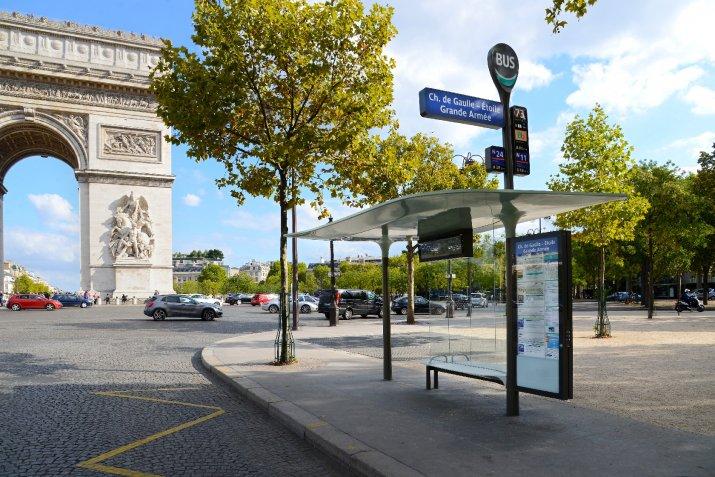Commitment

ENVIRONMENTAL RESPONSIBILITY
With the greenhouse gas reports on our activities and the life cycle analyses (LCA) of our furniture, we were able to identify our main impacts on the environment:
-
energy consumption
-
the resulting carbon emissions
-
our waste and water management
OUR ACTIONS: In all areas
To limit our impacts as much as possible, we have deployed a broad range of measures covering every aspect of our activities.
OUR FURNITURE
We are working to reduce the energy consumption of our street furniture.
- LED Lighting: we systematically install it in new street furniture and replace older technology in our existing stock.
- Renewably sourced electricity: this is included in contracts with our suppliers and purchased using certificates of origin. In 2016, 47% of our electric consumption was covered by renewable electric energy.
- Turning off street furniture at night, if possible.

OUR PAPER POSTERS
Billboards, the core of our business, get all our attention.
- FSC and PEFC Labels: we use certified paper, guaranteeing sustainable and responsible forest management.
- Recycling: used billboards are recycled in an appropriate system.

OUR WASTE
To conserve resources and optimise their use, we take action at every one of our street furniture's life stages.
- choosing materials responsibly,
- optimising raw materials for manufacture,
- reusing certain materials and refurbishing our street furniture,
- recycling: we sort all our waste, to facilitate its second life. In 2016, JCDecaux recycled 61,6% of its waste.
OUR VEHICLES
We are working to reduce our fuel consumption.
- Eco-driver training: all employees driving a JCDecaux vehicle receive this training. Responsible driving reduces fuel consumption and the resulting emissions.
- Vehicle fleet renewal: we prefer solutions suited to our activities that have the lowest impact on the environment.
- Review of logistics tours: we optimise travel and thus fuel consumption, while maintaining the same service quality.

PLASTIC
Combining safety, weather resistance, and sturdiness, PVC is one of the top components in billboard canvases. JCDecaux is committed to limiting its impact.
- Recycling: we recycle 40% of billboard canvas with PVC in Europe. Our objective is to recycle 80% of canvases with PVC in Europe by 2020.
- Alternatives to PVC: we are looking for materials with a lesser impact on the environment, offering the same quality of resistance and safety.

WATER
Water is a precious element; we strive to save it.
- Reducing consumption: we optimise our maintenance methods for cleaning our street furniture and vehicles.
- Choosing rainwater: we extend our capacity for collection within our street furniture and at our facilities.

BUSINESS MODEL. Responsible and sustainable.
Developed by Jean-Claude Decaux in 1964 with the advertising bus shelter, we have since applied our business model to all our current activities. With no impact on local finances or taxpayers, our business model enables us to innovate continuously to meet the needs of cities and citizens and to deliver smart and responsible mobility solutions. With over 200 areas of in-house expertise, our command of every step of the value chain allows us to guarantee optimal quality for the products and services offered and attend more closely to our clients’ needs.

